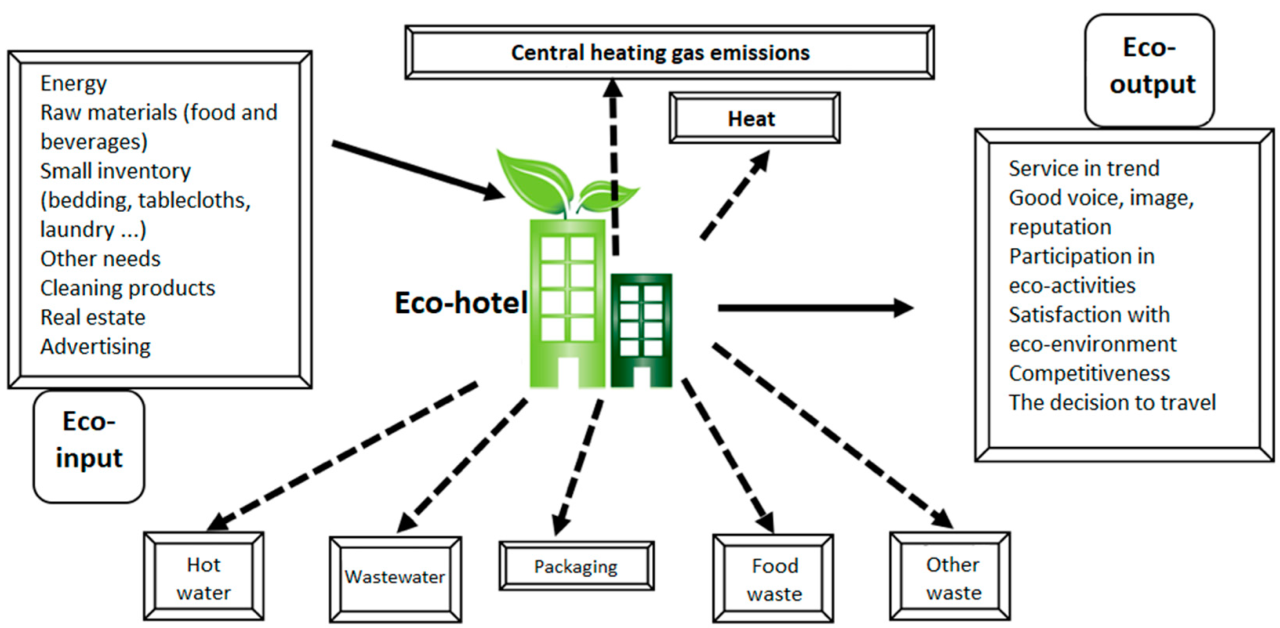
26
Feb
Future Trends in Sustainable Resorts: A Global Perspective
Future Trends in Sustainable Resorts: A Global Perspective
The global tourism industry is undergoing a paradigm shift, with a growing focus on sustainability. This trend is driven by the increasing number of tourist arrivals worldwide, changing perceptions about the future roles of hotels, and the rising demand for sustainable business practices. In response to these changes, hotel owners and operators are adapting their business models to remain attractive to investors and ensure profitability.
Economic Benefits of Sustainable Business Practices
Adopting sustainable business practices can bring substantial economic benefits to hotels. For instance, a study conducted at a ski resort in Italy explored the implementation of photovoltaic power generation and Vehicle-to-Grid (V2G) technology. Results indicate that photovoltaic power generation can reduce total expenditure and CO2 emissions by approximately 7%. However, the exploitation of V2G technology for energy arbitrage does not lead to significant cost and CO2 reductions with an increasing number of charging stations. Nevertheless, self-consumption improves using different charging strategies, and sensitivity analysis on PV production along with an increase in electric vehicles and energy price gap can result in cost reductions of up to 7.7% and 15.2%, respectively.
Case Studies: Istria County and Bulgaria
In Istria County, a paper examined the hotel offerings and proposed strategies for sustainable development to improve competitiveness in challenging markets. The research methods employed included interviews and questionnaires with hotel managers and tourists regarding competitiveness and predictions for future developments. The paper highlighted the need for continuous improvement and optimization in all aspects of tourism and hotel offerings.
Similarly, in Bulgaria, a country renowned as a tourist destination, the government prioritizes sustainable development in the tourism sector. As part of this strategy, Bulgaria has been divided into nine tourist regions to stabilize the supply of tourism. The National Strategy for Sustainable Tourism Development in Bulgaria 2014-2030 aims to prioritize sustainable tourism further by focusing on adapting to climate change as a critical aspect of regional development policy related to tourism.
Water Supply Challenges: Mallorca
Water supply issues represent a growing concern in environmental management, particularly in tourist resorts such as Mallorca. With tourism accounting for over 60% of GDP in the Balearic Islands, water shortages could have a significant impact on the industry. Although Mallorca’s susceptibility to future climate change poses a threat to water supplies, inter-annual and decadal-scale variability in precipitation is considered a greater risk. Coastal aquifer over-exploitation exacerbates water quality issues, which may be further intensified by any future sea level rise.
Conclusion
In conclusion, sustainable practices are increasingly becoming a key requirement for resorts globally. Implementing these practices not only has environmental benefits but can also result in economic advantages for the resorts. As such, understanding current trends and future developments within this space will be vital for resorts aiming to stay competitive within this changing landscape.
Share, repost, and comment to keep the momentum going! Subscribe for free to the Sustainable Investing Digest, to stay up-to-date with the latest news and sustainable investment opportunities. Join the movement towards a sustainable future and let Roseline Partners be your guide. Subscribe now on LinkedIn: https://www.linkedin.com/build-relation/newsletter-follow?entityUrn=7053058780464345088 ↗